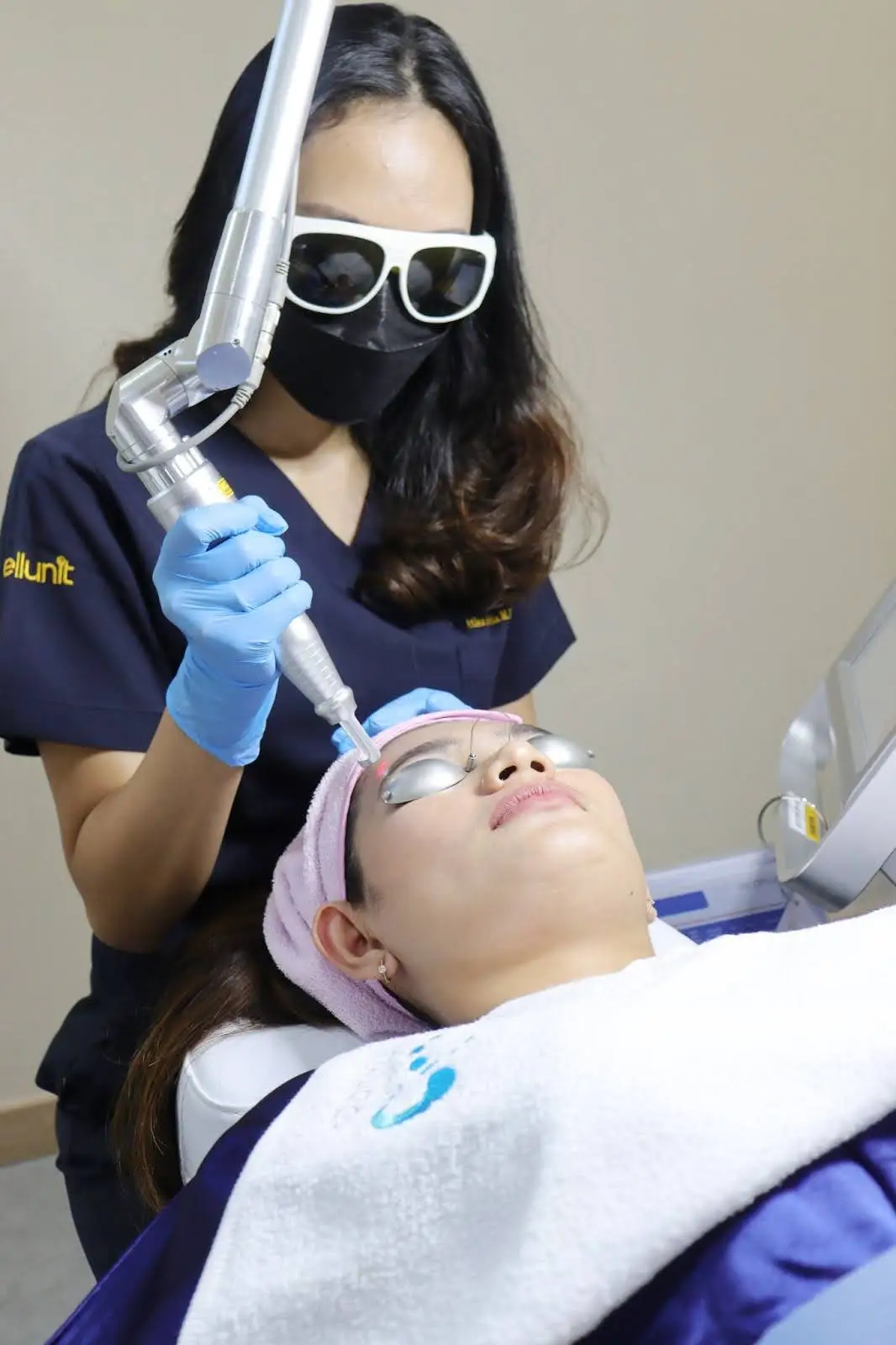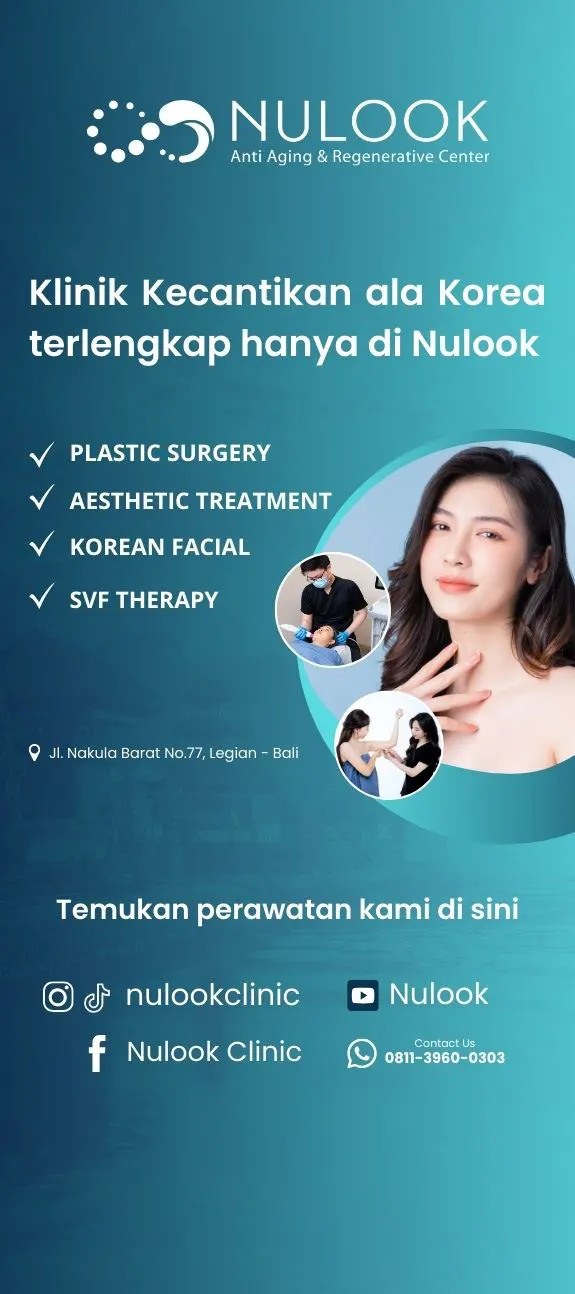Facial Skin Hyperpigmentation: Causes and How to Overcome It
Author: Nulook ExpertiseReview by: -Beauties, do you know what skin hyperpigmentation is? Facial skin hyperpigmentation is a common dermatological issue that can affect not only one's beauty but also their self-confidence. Simply put, hyperpigmentation occurs when melanin production in the skin increases, resulting in dark spots or uneven patches on the skin's surface. Typically, hyperpigmentation is more common in facial areas that are more exposed to sunlight.
Therefore, in this article, beauties will explore various aspects related to facial skin hyperpigmentation, from its causes to ways to address and prevent it. By gaining a deeper understanding of this issue, readers are expected to find effective solutions to maintain the health and radiance of their facial skin.
What is Skin Hyperpigmentation?
Hyperpigmentation is one of the common skin problems faced, caused by excessive melanin production. The incidence of hyperpigmentation in Indonesia is quite high, due to the skin type of Indonesian people, which falls into the Fitzpatrick skin phototypes 4 and 5 categories, where sunburn rarely occurs, and the skin tends to darken.
Additionally, the tropical climate in Indonesia and intense sun exposure also contribute to the increased incidence of hyperpigmentation. Melasma, as the most common example of hyperpigmentation, usually appears in women of reproductive age, between 20 and 45 years, and is often found in countries with tropical climates. This hyperpigmentation can cause cosmetic discomfort that significantly affects an individual's appearance and quality of life.
Read Also: Exfoliation: Understand the Benefits and How to Use It
Factors Causing Facial Skin Hyperpigmentation
Several factors can cause facial skin hyperpigmentation that beauties need to know, including genetics, nutritional disorders, hormonal factors, UV or sun exposure, the use of certain cosmetics, the consumption of oral medications, inflammation, and even malignancy. Check out below:
1. Genetics
Genetic factors play an important role in determining a person's susceptibility to hyperpigmentation. Individuals with a family history of hyperpigmentation problems tend to have a higher risk of experiencing similar conditions.
2. Nutritional Disorders
Nutritional disorders are also one of the causes of facial skin hyperpigmentation, beauties! Nutritional disorders such as protein deficiency, folic acid, and vitamin B12 can also contribute to the appearance of hyperpigmentation. This condition can affect melanin metabolism in the body and cause unbalanced melanin production, which in turn can lead to skin hyperpigmentation.
3. Hormonal
Hormonal factors, such as increased estrogen and progesterone hormones, are also associated with the occurrence of hyperpigmentation. This can happen during pregnancy, the use of hormonal contraceptives, or even during natural hormonal changes, such as menstruation.
4. UV or Sun Exposure
UV or sun exposure is one of the most common causes of hyperpigmentation. UV rays can stimulate melanocytes to produce more melanin in response to the damage caused by these rays. As a result, dark spots or patches can appear on skin that is excessively exposed to sunlight.
5. Cosmetics and Oral Medications
Did you know that the use of cosmetics can also be one of the causes of facial skin hyperpigmentation? Especially if these cosmetics contain phototoxic ingredients or strong fragrances. Additionally, the consumption of certain oral medications, such as arsenic, mercury, or minocycline, has also been proven to cause skin hyperpigmentation.
6. Skin Inflammation
Skin inflammation can also trigger hyperpigmentation. Scars, acne, or other inflammatory conditions can stimulate excessive melanin production in the affected area, causing uneven pigmentation.
7. Malignancy
What is meant by malignancy and its connection to hyperpigmentation causes? Malignancy or skin cancer can also cause hyperpigmentation. Some types of skin cancer, such as melanoma or basal cell carcinoma, are often accompanied by color changes in the affected skin, including increased pigmentation.
Read Also: Skincare Application Order: A Guide to the Best Skincare Routine
Ways to Overcome and Treat Facial Skin Hyperpigmentation
1. Hydroquinone with 2-4% Concentration
Beauties, you must be familiar with this cream, which is usually applied at night and is considered the mainstay for treating hyperpigmentation. However, to be honest, due to side effects that sometimes cause allergic dermatitis and irritation, plus the habit of stopping use and recurrence of the problem, many are now switching to more natural ingredients that are less problematic, such as kojic acid and arbutin.
2. Retinoic Acid
You can also use this cream at night as an additional and combination therapy. This cream softens the skin and helps reduce the thickness of the outermost skin layer (stratum corneum) and reduce the amount of melanin. However, keep in mind, if used in high concentrations, it can cause irritation.
3. Vitamin C
Vitamin C is often consumed orally at a dose of 1 gram per day, which can inhibit the melanin formation process, while orally consumed glutathione is considered to inhibit the activity of the tyrosinase enzyme involved in pigment formation.
4. Chemical Peeling
Chemical peeling is a cosmetic procedure using chemical substances to accelerate the exfoliation of skin cells, stimulate new skin regeneration, and reduce hyperpigmentation. This method is commonly used by beauty professionals to improve the appearance of the skin with satisfactory results.
5. Microdermabrasion
Microdermabrasion is a skin exfoliation method using fine diamonds to remove dead skin cells and pigment. It improves skin texture and brightness and stimulates collagen production. This treatment is safe and effective for reducing hyperpigmentation and acne scars. It is recommended to consult a professional before undergoing treatment.
Read Also: Men's Skincare Routine: The Secret to Healthy, Stylish Skin
6. IPL
IPL (Intense Pulse Light) is a method of treating skin hyperpigmentation using a broad spectrum of light to destroy melanin. This process damages melanocyte cells that produce melanin, breaking down the pigment and stimulating skin regeneration. The advantage is a non-invasive procedure with a short recovery time, but it often requires several treatment sessions. Consult with a dermatologist for proper evaluation beforehand.
7. Laser
The use of lasers in skin treatment is an effective method to reduce hyperpigmentation. In this procedure, the laser emits specific wavelengths to absorb and destroy melanin in the skin. The advantage of the laser is its ability to provide specific results without damaging the surrounding skin tissue.
However, several treatment sessions are needed for optimal results, and careful post-treatment skin care is required. Before undergoing laser treatment, consult with a dermatologist for proper evaluation.
In addressing facial skin hyperpigmentation, beauties have explored various treatment methods that can help overcome this issue. One treatment service worth considering is Thermage Bali Treatment, a non-invasive radio frequency therapy specifically designed to address signs of aging on the face and neck. Thermage can help tighten sagging skin, improve elasticity, and stimulate collagen production to achieve younger and healthier skin.
Additionally, there is also technology offering the latest solutions in addressing hyperpigmentation and other skin problems. With the ability to fire laser beams in a very short time, Pico Plus Laser can effectively remove pigmentation spots without damaging the surrounding skin. Beauties don't need to worry because both of these services are already available at Nulook, which is the first Korean Beauty Clinic in Bali.
Therefore, if you are looking for solutions for sagging skin, acne, or hyperpigmentation, Thermage and Pico Plus Laser could be interesting options to make your skin brighter and more radiant. Do not hesitate to consult with skin health professionals at Nulook Beauty Clinic to get the right advice according to your skin needs. Book your appointment with us or contact Nulook at the following WhatsApp number now!


